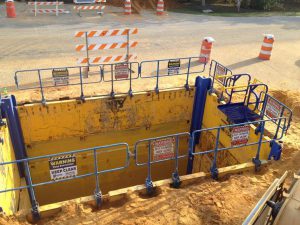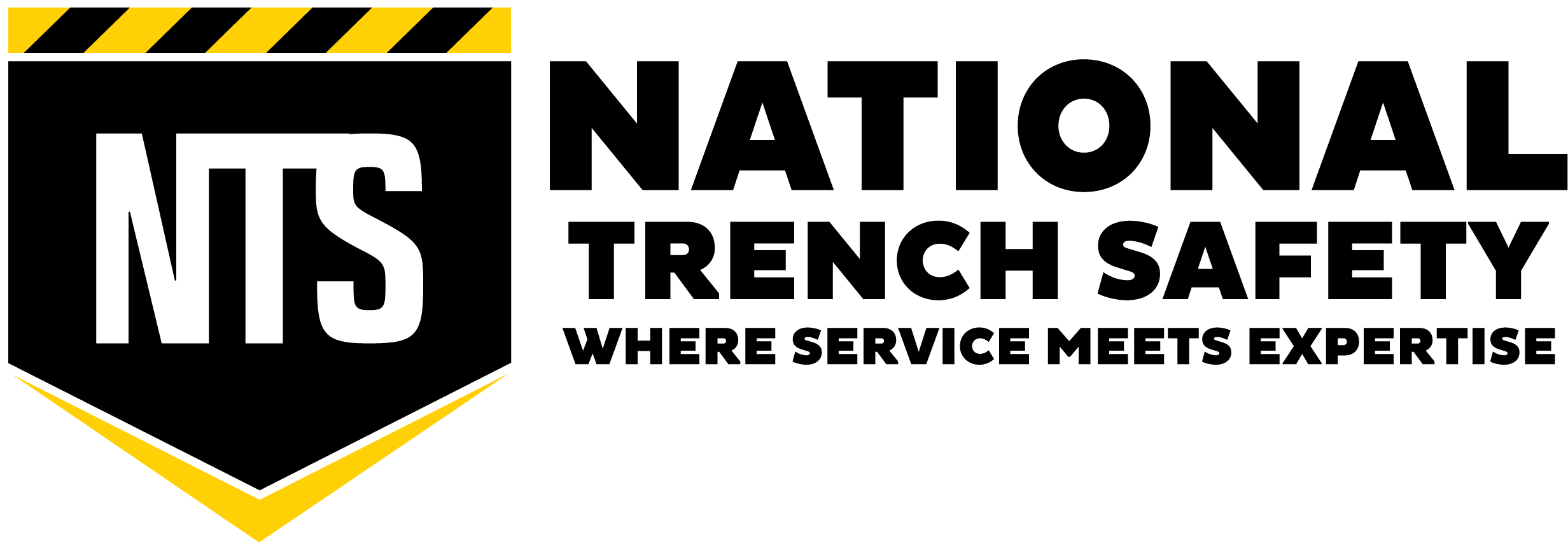Knowledge Article: Registered Professional Engineer, Tabulated Data, and Interstate Commerce
Federal and State interstate commerce regulations along with the Federal OSHA regulations state that for manufactured shoring and shielding equipment, the structural certification stamp from the state where the shoring is manufactured is to be accepted in all states. The following definition applies to this:
1926.650(b)-Definitions applicable to this subpart.
“Registered Professional Engineer” means a person who is registered as a professional engineer in the state where the work is to be performed. However, a professional engineer, registered in any state is deemed to be a “registered professional engineer” within the meaning of this standard, (OSHA Subpart P-Excavations), when approving designs for “manufactured protective systems” or “tabulated data” to be used in interstate commerce.
Despite this definition, shoring related projects often experience delays because the engineer’s stamp on the tabulated data is not from the state the work is being  performed. Some project owners want to have the tabulated data approved and stamped by an engineer from the project state for very specific reasons, which may include:
performed. Some project owners want to have the tabulated data approved and stamped by an engineer from the project state for very specific reasons, which may include:
- Ensuring adherence to state laws, regulations, and engineering design standards are being followed.
- Ensuring that legal jurisdiction can be heard in the state where the work is performed, as it can be very expensive to attend interstate hearings.
- Meeting requirements that are found in some government funded projects that locally registered and licensed engineering firms are being awarded the work. Although these callouts may conflict with the interstate commerce rules as developed in the OSHA standard, they are still found in many contracts.
These are all excellent, rationale reasons to require tabulated data have the stamp of the state where the project is occurring. Many in our industry feel this is a right that the state and local government should be able to exercise. However, the ideal method to enforce this standard is to establish it as a contract requirement when a contractor begins to bid a project to level the playing field for all contractors bidding a project.
Often in practice, a reviewing engineer may refuse to approve a shoring submittal without a state stamp being applied to all site specific systems and or manufactures tabulated data. The contractor would then go back to the shoring supplier to have the stamp updated, which begins a process that culminates with the manufacturer of the system having to have the tabulated data stamped by an engineer in the state where the work is being performed. Depending on the exact structure of the companies, there may be additional billable engineering that will be charged to a party that wasn’t accounted for by the contractor, shoring supplier or the manufacturer.
One way to counteract this process is to ask during the bid phase, whether there will be a requirement for a local engineer’s stamp. If the answer is yes, then one can see what the cost may be for acquiring that stamp, whether the equipment is a contractor’s owned fleet or something that may be rented from a shoring supplier.
As the industry evolves, many suggest that there should be a universal contract specification with a clear statement, such as “a local engineer’s stamp will be required on all manufactures tabulated data. The stamp of the engineer in the state it was generated in will not be sufficient unless it is the stamp of the state where the work is being performed.” This statement would alert the contractor to the need to address the need for a stamp, as well as to properly include the item in the project budget.
This evolution of the industry must be through continued education and awareness and it’s one of the reasons many suppliers and contractors belong to trade association. NTS is a founding member of the North American Excavation Shoring Association (NAXSA), which among other objectives seeks to address policies for the safety and benefit of all those engaged in the excavation industry. NTS also has the capability to provide contractors with a review of tabulated data and site specific plans in every US state as well as Canada if the need arises.
About the Author:
Joe Turner, P.E. serves as National Trench Safety’s Director of Engineering, Research and Product Development. Mr. Turner is one of the most recognized figures in the trench safety industry, having provided trench safety plans for the last 20 years. Among his many accomplishments, is the book Excavation Systems, Design, Planning and Safety, which was published by McGraw-Hill in 2008 and is still used today as a reference for many students and professionals regarding proper engineering techniques.
DISCLAIMER: the information contained in this article is provided for general and illustrative purposes only and is not to be considered Site Specific and or designated engineering for any project or work zone, nor is it to be used or consider to be tabulated data, technical data, advice and or counsel to be used on any jobsite. Each project is different and is the responsibility of the employer’s designated Competent Person to make decisions upon what systems and methods may be used in compliance with the federal and local regulations, manufactures tabulated data, engineered drawings and other plans.





